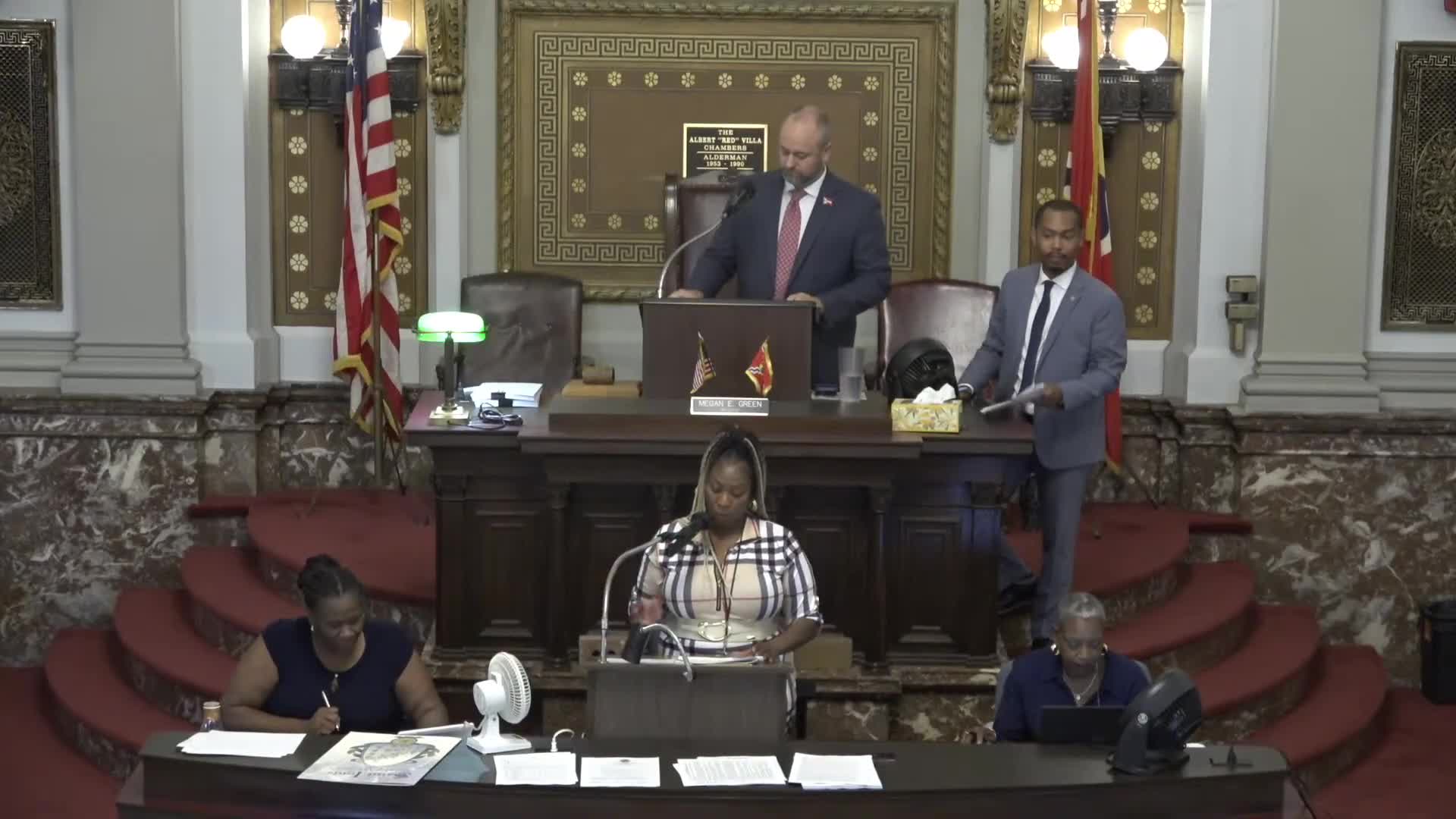Board of Aldermen OKs Changes to Zoning Code to Allow Accessory Dwelling Units
September 27, 2025 | St. Louis City, St. Louis County, Missouri
This article was created by AI summarizing key points discussed. AI makes mistakes, so for full details and context, please refer to the video of the full meeting. Please report any errors so we can fix them. Report an error »

The Saint Louis Board of Aldermen on Friday voted to third-read and finally pass board bill 60, an ordinance amending Chapter 26 of the zoning code to define, permit and regulate accessory dwelling units (ADUs). The measure passed on a roll call of 12 ayes and one no.
Board bill 60 was introduced by Alderwoman Shamim Clark Hubbard and carried through final passage by members who said the change updates the city’s zoning rules to allow ADUs under defined conditions. The ordinance text, as presented to the board, states it "defines, permits, and regulates accessory dwelling units ADU" and "contains a severability and emergency clause."
Supporters framed the ordinance as a land‑use update to expand lawful, accessory housing options under the zoning code. Opponents raised implementation concerns and potential unintended outcomes. "I'll be brief. I realized that I'm the only no vote on this, but I continue to have concerns that we're gonna see a proliferation of short term rentals," said the Alderman from the Fourth Ward during final debate.
On the roll call, Alderman Narayan registered the single no vote; the remaining members present voted aye. The ordinance language includes an emergency clause and a severability clause as read on the floor.
The board did not adopt additional amendments in the final vote. Because the bill was described on the floor as containing an emergency clause, it is formal city legislation pending the normal finalization steps recorded by the clerk.
Next steps noted by the clerk and president included the customary signing and filing actions so the ordinance will be entered into the city record.
Board bill 60 was introduced by Alderwoman Shamim Clark Hubbard and carried through final passage by members who said the change updates the city’s zoning rules to allow ADUs under defined conditions. The ordinance text, as presented to the board, states it "defines, permits, and regulates accessory dwelling units ADU" and "contains a severability and emergency clause."
Supporters framed the ordinance as a land‑use update to expand lawful, accessory housing options under the zoning code. Opponents raised implementation concerns and potential unintended outcomes. "I'll be brief. I realized that I'm the only no vote on this, but I continue to have concerns that we're gonna see a proliferation of short term rentals," said the Alderman from the Fourth Ward during final debate.
On the roll call, Alderman Narayan registered the single no vote; the remaining members present voted aye. The ordinance language includes an emergency clause and a severability clause as read on the floor.
The board did not adopt additional amendments in the final vote. Because the bill was described on the floor as containing an emergency clause, it is formal city legislation pending the normal finalization steps recorded by the clerk.
Next steps noted by the clerk and president included the customary signing and filing actions so the ordinance will be entered into the city record.
View full meeting
This article is based on a recent meeting—watch the full video and explore the complete transcript for deeper insights into the discussion.
View full meeting
